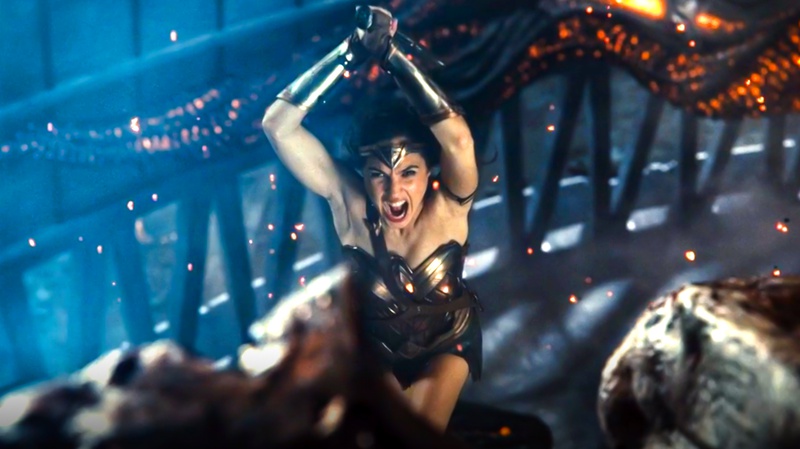
Zack Snyder's Justice League continues to make waves throughout the DCEU fandom after its long-awaited arrival on HBO Max just over three weeks ago. The four-hour epic has earned much more success than its theatrical counterpart and gave Zack Snyder the opportunity to explore details of his story that were previously lost within the canon franchise.
Setting aside the numerous story points that Snyder set to include in this retelling of Justice League , one aspect of the film that was unmistakably Snyder's was his style of filmmaking that has earned widely mixed reviews in the past. His dark color scheme, his unique visual effects, and his unashamed use of violence were all present as he sought to tell this adventure the way he intended almost four years ago in theaters.
Another noticeable trait in his filmmaking style is the heavy use of slow-motion, which was recently touched on by one of the masterminds behind the Snyder Cut.
THE SLOW-MOTION IN THE SNYDER CUT

In a recent interview with Indie Wire , Zack Snyder's Justice League cinematographer Fabian Wagner spoke on the movie's utilization of slow-motion and how Snyder uses it in his storytelling.
The many slow-motion sequences are something that Snyder's team knows the filmmaker enjoys, and Fabian confirmed that he and the team "have to be prepared for that" while chuckling about the experience:
"The one thing we know about Zack is that he loves slow motion, so you have to be prepared for that. There’s a technical aspect — if you crank up the camera, you need a lot more light, so you have to be prepared for that. I was ready on most sets, I was always prepared to kick the light up a couple f-stops."
Wagner also confirmed that the slow-motion work all happens "in camera" and that the crew knows what to expect in terms of what will be slowed down in the final cut:
"No, in camera. For example, the stuff with Ray [Fisher] playing American football – I don’t remember now how fast [frames per second] we went – but we knew going in on that day."
Expanding on more than the football scene, Wagner touched on how Zack Snyder "doesn’t make movies to a certain time frame." Looking back at the two-hour theatrical cut of the film, he knew that it "was always going to be a long movie" and spoke on how much planning went into every shot, slow-motion or not:
"Absolutely. We thought about that all very carefully. I always say Zack doesn’t make movies to a certain time frame. He takes the time he takes to make his movies. This was always going to be a long movie. You have six superheroes with backstories. That’s why you’d call a two-hour version kind of a massacre."
ALL GOING ACCORDING TO PLAN
Zack Snyder is well known for his slow-motion work in almost every film he's made, and the same can be said about Zack Snyder's Justice League . Statistically, over 10% of the four-hour-two-minute runtime used slow-motion, which led to plenty of mixed feelings about the subject amongst the fan base.
Even considering how well-known it is that Snyder loves using this in his movies, it's clear that he and his team felt it was necessary to tell the story of Justice League the way he wanted it told. While plenty of it was seen in scenes featuring Ezra Miller's Flash for extra effect, it helped add plenty of dramatic tension to some of the high-intensity moments of the film.
Zack Snyder's Justice League is now available to stream on HBO Max.
Richard Nebens joined The Direct in March 2020, now serving as the site's Senior Writer and also working as an assistant editor and content creator. He started his journalism career as a hobby in 2019 and is passionate about sharing news and stories from the entertainment industry, especially comic book movies, comedy, and sci-fi. Richard looks to expand his knowledge about movies and TV every day, and he is eager to stay locked into the latest releases and breaking news at every opportunity.












